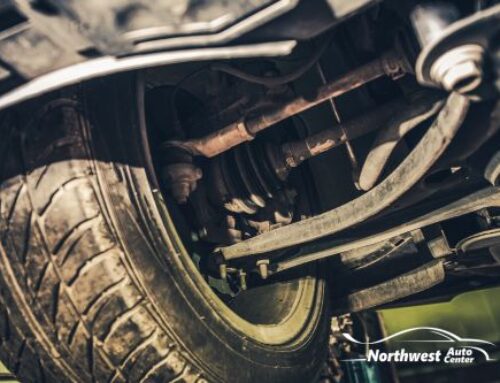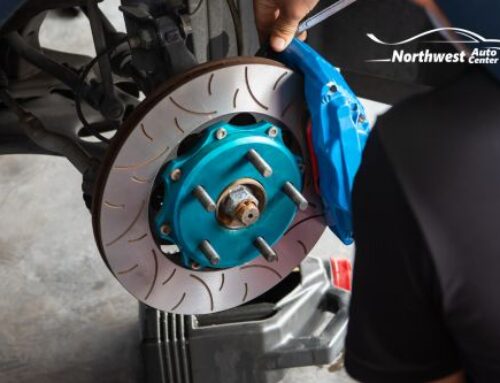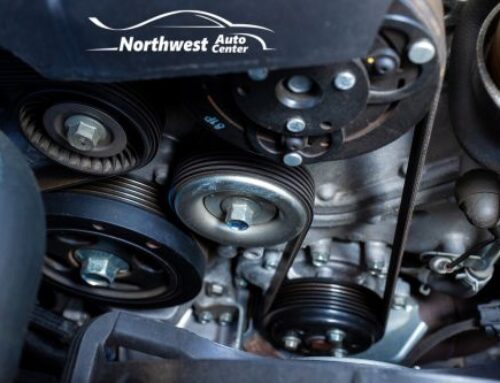
Do you have an “old-faithful” of a car?
Owning a high-mileage vehicle comes with a unique set of challenges and responsibilities. As cars age and accumulate miles, they require more attentive care to maintain their performance and reliability.
Luckily, by that point, most drivers are well-versed in their vehicle’s “normal” performance and sound.
10 Tips for Keeping Your High Mileage Vehicle on the Road
Whether you’re driving an older vehicle as your daily commuter or keeping it as a trusty backup, following essential maintenance tips can help extend its life and keep it running smoothly.
1. Regular Oil Changes
Oil is the lifeblood of your engine, especially in a high-mileage car.
As engines age, they become more prone to wear and tear, which can be exacerbated by dirty or insufficient oil. Stick to a strict oil change schedule, using high-quality oil that is suitable for older engines. Chat with your mechanic on what oil and schedule to follow to best suit your high-mileage car and driving style.
2. Check and Replace Fluids
Apart from oil, your high mileage car relies on several other fluids to function correctly, including coolant, transmission fluid, brake fluid, and power steering fluid.
Over time, these fluids can degrade and become contaminated. Regularly checking and replacing these fluids prevents issues like overheating, transmission failure, or brake problems
** Note ** Every 2 years or 30,000 miles, we recommend a brake flush, throttle body service, power steering flush and fuel injection service be performed. Also, if equipped, the cabin air filter be replaced too. Remember, maintenance is always less expensive that repair.
3. Inspect and Replace Belts and Hoses
With high mileage vehicles comes extra wear and tear. You’re more likely to start to see belts and hoses with a rack, fray, or break. And one thing to remember, is that coolant hoses degrade from the inside out. Hoses may look okay on the outside, but not on the inside.
Regularly inspect all belts and hoses for signs of wear, and replace them at the first sign of damage (which may actually be a sound and not a physical sign). A broken belt or hose can lead to significant engine damage or leave you stranded on the road.
4. Monitor Tire Condition and Alignment
Tires are the only part of your high mileage vehicle that makes contact with the road, so their condition is critical to your safety and comfort.
Check your tires regularly for signs of uneven wear, cracks, or punctures. Keeping your tires properly inflated and ensuring your vehicle’s alignment is correct will not only improve handling and fuel efficiency but also extend the life of your tires. Don’t forget to rotate your tires regularly to promote even wear.
5. Maintain the Battery
As your car ages, its battery may become less reliable.
Cold weather, hot weather and frequent short trips can further strain the battery, leading to unexpected failures. To avoid being stranded with a dead battery, check the battery’s voltage and overall condition regularly. Clean the terminals and cables to prevent corrosion, and consider replacing the battery every three to five years, or as soon as you notice any signs of weakness.
6. Keep an Eye on the Exhaust System
The exhaust system in an older car is more likely to develop leaks, rust, or other issues due to years of exposure to the elements.
A failing exhaust system can lead to decreased engine performance, increased fuel consumption, and harmful emissions. Have your exhaust system inspected regularly during your scheduled oil changes. Repair or replace any damaged components.
7. Stay on Top of Brake Maintenance
Your high-mileage vehicle’s braking system is one of its most critical safety features. Over time, brake pads, rotors, and other components can wear down, reducing braking efficiency.
If you start to notice signs of wear as the miles add up, such as squeaking, grinding, or a spongy pedal feel — visit your local shop ASAP. Replace brake pads and rotors as needed, and flush the brake fluid every few years to ensure optimal braking performance.
8. Replace Worn Suspension Components
The suspension system in an older vehicle takes a beating over time, leading to a less comfortable ride and compromised handling.
Worn shocks, struts, and other suspension components can cause your car to bounce excessively, lean in turns, or experience uneven tire wear. Inspect the suspension system regularly and replace any worn or damaged parts to restore your vehicle’s smooth ride and stability.
9. Protect the Interior and Exterior
While maintaining the mechanical aspects of your high-mileage car is crucial, don’t forget about its appearance.
Older vehicles used thinner paint layers than current models, meaning they need a little TLC to prevent rust and corrosion. While you are at it, protect your car’s interior with a protectant spray to keep the interior looking fresh.
10. Address Minor Issues Promptly
One of the most important maintenance tips for any older car is to address minor issues before they become major problems.
Small leaks, unusual noises, or minor performance issues can quickly escalate into costly repairs if left unchecked. By taking a proactive approach and fixing problems as soon as they arise, you can prevent further damage and keep your high-mileage vehicle running smoothly for years to come.
Keeping Your High Mileage Car on the Road
Owning a high mileage vehicle doesn’t mean you have to compromise on reliability or performance.
By following these ten essential maintenance tips, you can keep your older car in excellent condition, extending its life and ensuring a safe and enjoyable driving experience. Regular maintenance and timely repairs are key to getting the most out of your high-mileage car, allowing you to continue driving it for many miles to come.
Feel free to contact us at (281) 894-8880. We’re happy to help in any way we can!






Leave A Comment
You must be logged in to post a comment.